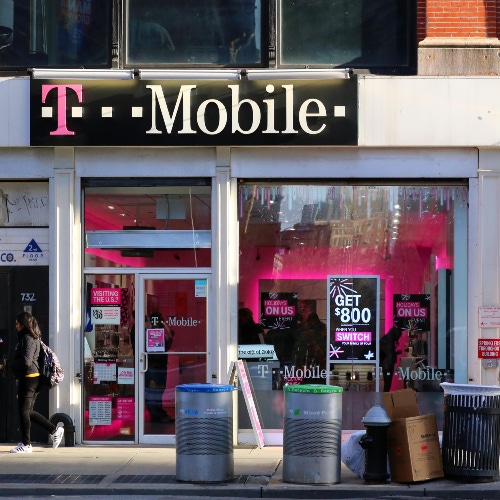
T-Mobile is well into its five-year, $60 billion effort to merge with Sprint and build a massive, nationwide 5G network. But a new lawsuit filed in Washington takes aim at one of T-Mobile's first steps along that path: Shuttering Sprint's legacy 5G network.
As reported by FierceWireless, just weeks after T-Mobile closed its acquisition of Sprint in 2020, it began deactivating the Sprint 5G network that covered parts of 13 US cities. Sprint had begun building that network in 2019, after T-Mobile announced its plans to purchase the company but before that transaction officially closed.
According to figures from BayStreet Research, Sprint had sold about 75,000 phones for its own 5G network prior to the close of T-Mobile's purchase of the operator.
"Plaintiff brings this consumer class action lawsuit because Defendant [T-Mobile] developed, marketed, distributed, and advertised the launch of their 5G Network (the "Network") without disclosing to its customers, including former Sprint customers following the merger between Sprint and T-Mobile, that they intended to shut down older networks without adequately addressing Network incompatibilities for numerous devices dependent upon them, including but not limited to the Samsung Galaxy S10 5G, LG V50 ThinQ 5G, HTC 5G Hub, OnePlus 7 Pro 5G, and various tablets, security systems, and other devices," according to the lawsuit.
Indeed, the lawsuit points out that T-Mobile is now in the midst of shutting down Sprint's other networks, including its CDMA and LTE networks.
Figure 1:  (Source: Robert K. Chin - Storefronts/Alamy Stock Photo)
(Source: Robert K. Chin - Storefronts/Alamy Stock Photo)
Importantly, the lawsuit also alleges that T-Mobile didn't provide suitable replacement devices for its own 5G network while shuttering Sprint's legacy 5G network. The operator declined to discuss the details of the lawsuit but said it would defend itself against the claims.
A 'G' thing
Broadly, the lawsuit targets an issue that has long bedeviled wireless network operators of all shapes and sizes. As wireless technology improves, network operators routinely introduce new generations, or Gs, of connection technology. However, given their finite spectrum resources, they often discontinue services for older Gs in order to reallocate that spectrum into networks using newer and more capable Gs.
For example, Verizon, AT&T and T-Mobile have all promised to shutter their 3G networks this year as they work to transition customers onto 5G networks. Such efforts often involve offering affected customers new phones – though most mobile customers move to new Gs on their own, without such promotions, as they replace aging devices.
But T-Mobile's shutdown of Sprint's legacy 5G network was relatively unique considering that network was only commercially available for around a year before it was decommissioned. Most wireless networks run for at least a decade. And some 2G networks could remain in service for 30 years or more.
Lawsuits on lawsuits
It's worth noting that wireless network operators – and virtually all consumer-facing businesses – routinely face lawsuits of various shapes and sizes. Indeed, another lawsuit against T-Mobile alleges its merger with Sprint "combined two fierce competitors into a single behemoth with no incentive to compete meaningfully."
As noted by the National Wireless Independent Dealer Association, the new lawsuit against T-Mobile was filed by customers of AT&T and Verizon, and alleges that the combination of T-Mobile and Sprint no longer provides suitable competition in the industry. The newly merged company is "a single large competitor that is more than happy to observe a competitive détente in return for stable market shares and prices," according to the lawsuit.
Related posts:
— Mike Dano, Editorial Director, 5G & Mobile Strategies, Light Reading | @mikeddano
About the Author(s)
You May Also Like












